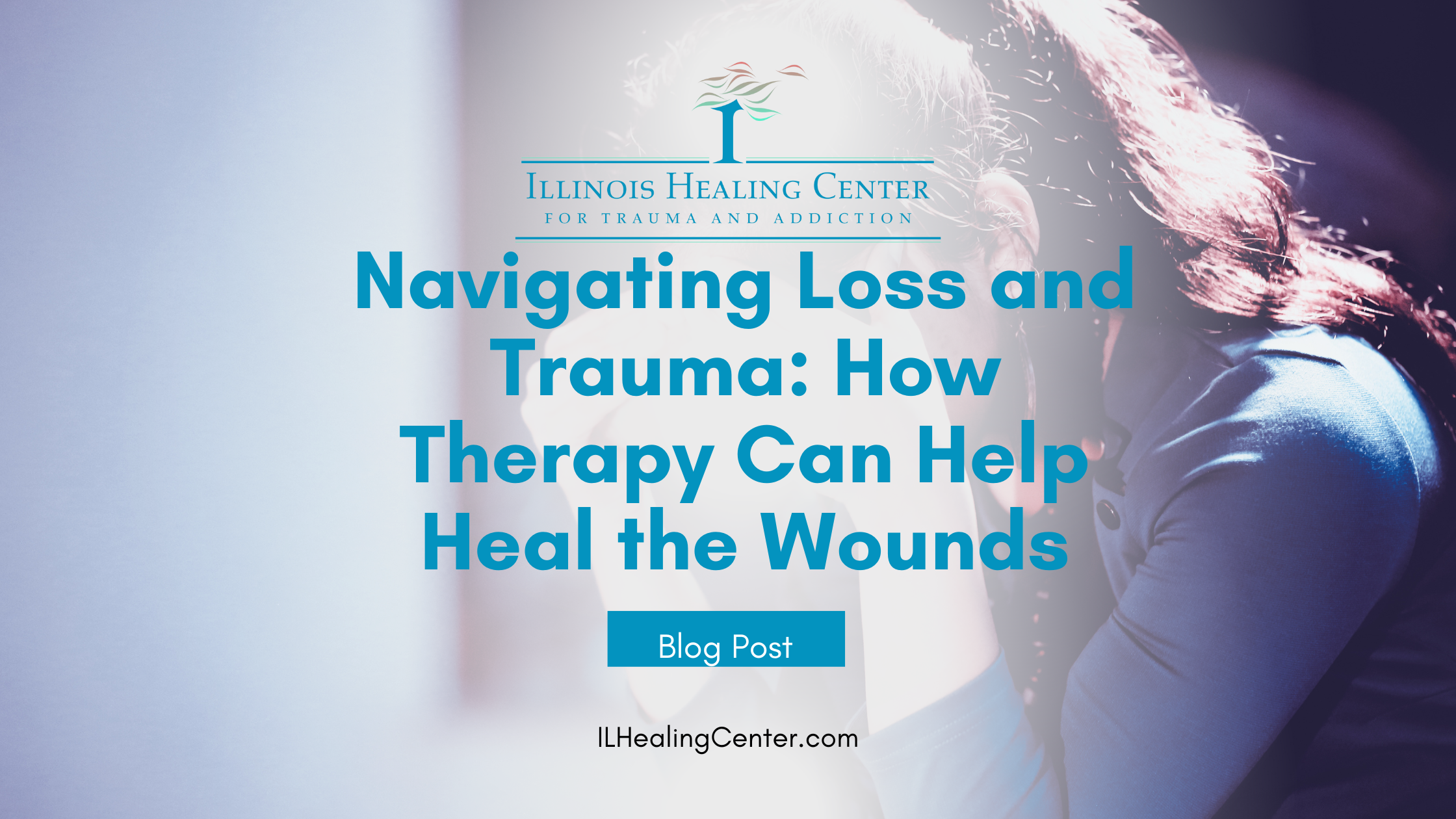Loss and trauma are universal experiences that can profoundly impact our lives, leaving emotional scars that may seem insurmountable. Whether it’s the loss of a loved one, a traumatic event, or a major life change, the effects can be devastating and long-lasting. At Illinois Healing Center for Trauma and Addiction, we understand the complex interplay between loss, trauma, and mental health. In this blog, we explore the connection between these experiences and the role of therapy in facilitating healing and recovery.
Understanding Loss and Trauma:
Loss comes in many forms – the death of a loved one, the end of a relationship, or the loss of a job or home. Similarly, trauma can stem from various sources such as physical or emotional abuse, accidents, or natural disasters. Regardless of the cause, both loss and trauma can trigger a range of emotions including grief, anger, guilt, and sadness. These experiences can also manifest in physical symptoms such as insomnia, fatigue, and changes in appetite.
The Impact on Mental Health:
Loss and trauma can have a profound impact on mental health, leading to conditions such as depression, anxiety, post-traumatic stress disorder (PTSD), and substance abuse. Individuals may struggle to cope with overwhelming emotions, intrusive thoughts, and a sense of hopelessness. Left untreated, these mental health issues can significantly impair daily functioning and quality of life.
The Role of Therapy:
Therapy provides a safe and supportive environment for individuals to explore their feelings, process their experiences, and develop coping strategies. At Illinois Healing Center for Trauma and Addiction, our therapists specialize in trauma-informed care, utilizing evidence-based approaches such as cognitive-behavioral therapy (CBT), dialectical behavior therapy (DBT), and eye movement desensitization and reprocessing (EMDR).
Through therapy, individuals can:
- Validate their emotions: Therapy offers a non-judgmental space where individuals can express their feelings without fear of criticism or rejection. Therapists provide validation and empathy, helping clients feel heard and understood.
- Identify coping mechanisms: Therapists collaborate with clients to identify healthy coping mechanisms that can help them navigate difficult emotions and situations. This may include relaxation techniques, mindfulness exercises, or journaling.
- Process traumatic memories: Trauma-focused therapies such as EMDR allow individuals to process traumatic memories in a safe and controlled manner, reducing their intensity and emotional charge.
- Build resilience: Therapy helps individuals develop resilience and adaptive coping skills that empower them to effectively manage future challenges and setbacks.
Available Resources:
Loss and trauma are formidable challenges that can leave lasting scars on our hearts and minds. However, with the right support and guidance, healing is possible. Therapy provides a beacon of hope for those grappling with the aftermath of loss and trauma, offering a path toward healing, growth, and resilience. If you or someone you know is struggling, reach out to Illinois Healing Center for Trauma and Addiction – we’re here to support you on your healing journey.



